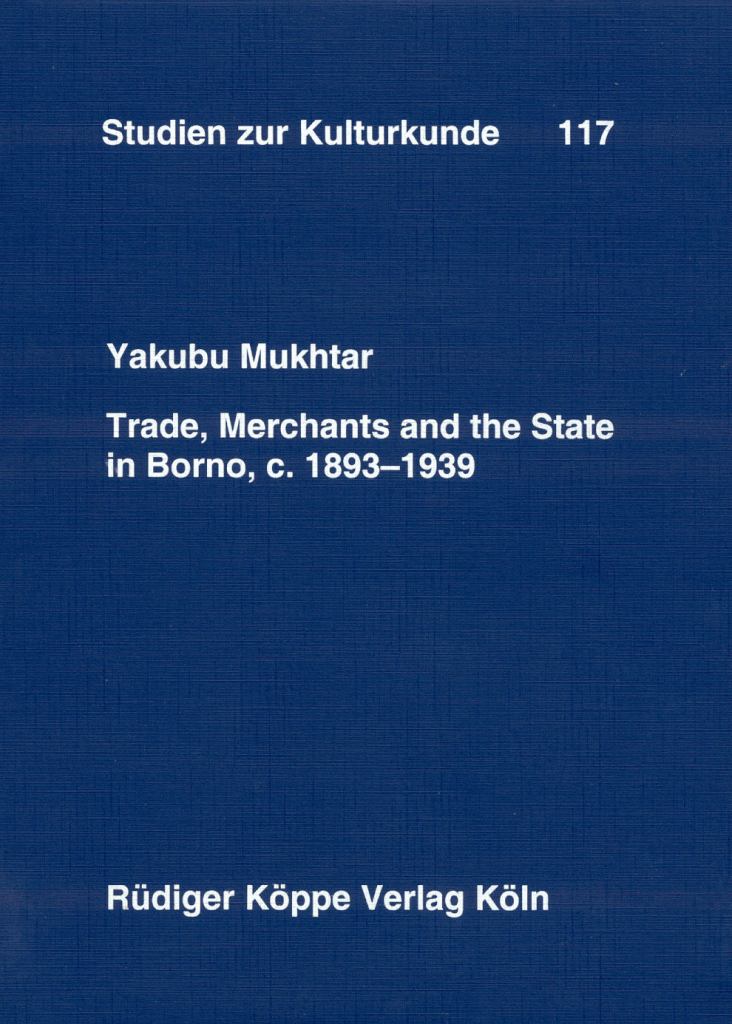
Trade, Merchants and the State in Borno, c. 1893-1939
Author: Yakubu Mukhtar. Series edited by: Beatrix Heintze, Karl-Heinz Kohl.
Series: SzK Studien zur Kulturkunde Volume 117
2000323 pp.
5 maps, 12 tables, 1 illustration, appendix: contemporary economic data and statistics concerning the region of Borno/Nigeria, glossary
Text language(s): English
Format: 170 x 240 mm
620 g
Plastic
€ 49.80
Buy 'Trade, Merchants and the State in Borno, c. 1893-1939' as a downloadable PDF document directly from our online shop »
Order 'Trade, Merchants and the State in Borno, c. 1893-1939' as print edition »
The first and last decades of the 19th century form significant periods for the economic history of the central Sudanic kingdom of Borno: In both periods the economy suffered greatly as a result of invasions, first by the Fulani (or Fellata) rebels in 1808/9 and later, in 1893, by Rabih ibn Fadl-Allah. Rabih’s period in Borno history came to an end with the colonial conquest of the Chad basin in the opening years of the 20th century.
The colonial economy in Borno developed slowly, to some extent because of the paralysis brought about by Rabih’s invasion. More important factors accounting for the slow development of exports for the overseas markets, however, were the remoteness of the Borno province from the new centres of commercial activity along the Nigerian coast, and the late arrival of modern transport facilities in the province.
The present study on the economic history of Borno in the late 19th and early 20th century shows that despite the poor state of transport facilities during the first three decades of colonial rule, important commercial activity, both across the colonial boundaries and between Borno and other Nigerian provinces, existed. Furthermore, many of the indigenous traders involved in this internal and overland trade gradually came to serve as middlemen between the African producers and the expatriate companies in Borno when these companies were able to establish their presence after transport facilities to the province had been improved.
Accompanying material:
- Borno in the Rabih Years 1893–1901
(ISBN 978-3-89645-508-6 ) - Clapperton in Borno
(ISBN 978-3-927620-54-4 ) - Kanuri, Borno and Beyond
(ISBN 978-3-89645-892-6 ) - Ortsnamen in Borno (Nordnigeria)
(ISBN 978-3-89645-465-2 ) - Place Names in Borno and Yobe States (Northern Nigeria)
(ISBN 978-3-89645-194-1 )
| « back | Print version | [top] |
 Books
Books Audio
Audio Biographies
Biographies Series
Series Festschrifts
Festschrifts Journals
Journals